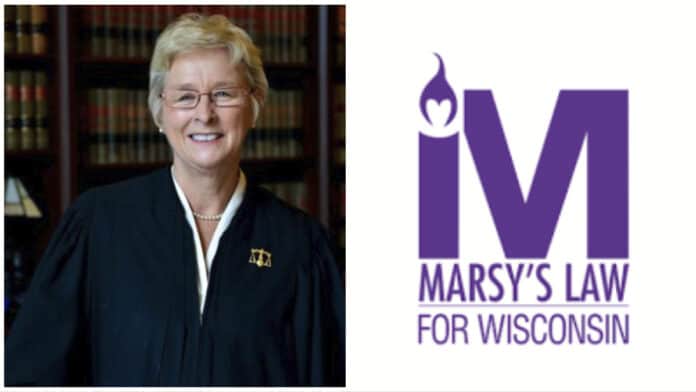How radical is left-wing Justice Ann Walsh Bradley? She alone would have invalidated the votes of more than 1.1 million Wisconsinites, who wanted to protect victims’ rights.
Left-wing Supreme Court Justice Ann Walsh Bradley was the ONLY justice to vote against a sweeping victims’ rights amendment known as Marsy’s Law. She would have invalidated the votes of more than 1.1 million Wisconsinites who authorized the sweeping victims’ rights amendment because she doesn’t believe the language alerted voters that it would also harm criminal defendants’ rights.
So out of step was Walsh Bradley in this decision, which came down in May 2023, that all of the other liberal and conservative justices disagreed with her. Walsh Bradley has already announced that she will run for a fourth term in 2025.
Wisconsinites voted in favor of Marsy’s Law in 2020 by a vote of 1,107,067 to 371,013. It read:
“Additional rights of crime victims. Shall section 9m of article I of the constitution, which gives certain rights to crime victims, be amended to give crime victims additional rights, to require that the rights of crime victims be protected with equal force to the protections afforded the accused while leaving the federal constitutional rights of the accused intact, and to allow crime victims to enforce their rights in court?”
In her dissent, Walsh Bradley acknowledged that “ballot question challenges have been few and far between in the history of our state.” She cited a 1925 case and argued that “from the ballot question only, voters would have no idea that the proposed amendment diminishes the rights of criminal defendants in addition to bolstering the rights of crime victims.”
Walsh Bradley added: “In my view, the diminution of a defendant’s rights previously protected by law, constitutes an ‘essential’ element of the amendment. When the amendment was presented to voters, the ballot question gave no hint that a defendant’s rights were being diminished.”
According to Walsh Bradley, she was concerned about “the new language that allows a victim to essentially refuse interviews and discovery requests,” saying this “would certainly seem to have a detrimental effect on the rights of the accused.” She added: “Similarly, the previous constitutional language allowed a circuit court to sequester a victim from the courtroom to preserve the fair trial right of the defendant. This right is now gone.”
The lawsuit was brought by several criminal defense attorneys, former Democratic state Senator Fred Risser, and Wisconsin Justice Initiative, Inc. The latter works for “progressive” change in the criminal justice system, including making it easier to release defendants before trial and legalizing marijuana. The majority’s decision, which upheld Marsy’s Law, was authored by Justice Brian Hagedorn.
According to Hagedorn’s decision, the plaintiffs argued that the law was adopted in violation of the process spelled out in the constitution, because it supposedly misled voters by “neglecting the amendment’s impact on the rights of criminal defendants,” but the majority disagreed.
“Not a single constitutional amendment in Wisconsin history has ever undergone judicial review using this ostensible test,” Hagedorn wrote of the plaintiffs’ arguments.
He also hinged the majority decision on the “original meaning of the Wisconsin Constitution,” and, thus, declined “the invitation to fashion a new, exacting constitutional standard.” Hagedorn wrote that the only time the court had struck down a proposed amendment was in 1953 because the wording given to the people was “counterfactual” to what the amendment actually did. “The extreme situation in Thomson is not present here,” he wrote.
Marsy’s Law gave victims the right “to be treated with dignity, respect, courtesy, sensitivity, and fairness,” to privacy, to timely disposition of a case, to reasonable protection from the accused, to attend all proceedings, and more. Victims could also “refuse an interview, deposition, or other discovery request made by the accused or any person acting on behalf of the accused.”
Conservative Justice Rebecca Bradley, in a concurrence, accused Walsh Bradley and two other justices who wrote their own opinions of arguing to “supplant the legislature’s constitutionally assigned role, arrogate the power to set aside the not-particularly-close results of a lawfully-conducted election, and embrace a judicially invented test never before applied in the history of Wisconsin. None of these justices defines with any particularity the test they propose to determine whether such an undemocratic remedy is warranted, much less identify the source of their authority to impose it.”
Justice Rebecca Dallet, a liberal who joined the majority, wrote a separate opinion that attacked “the majority’s claim that originalism is somehow our settled approach to constitutional interpretation is incorrect. In fact, many of our recent cases use a more inclusive approach to constitutional interpretation that considers more than merely text and history.”































